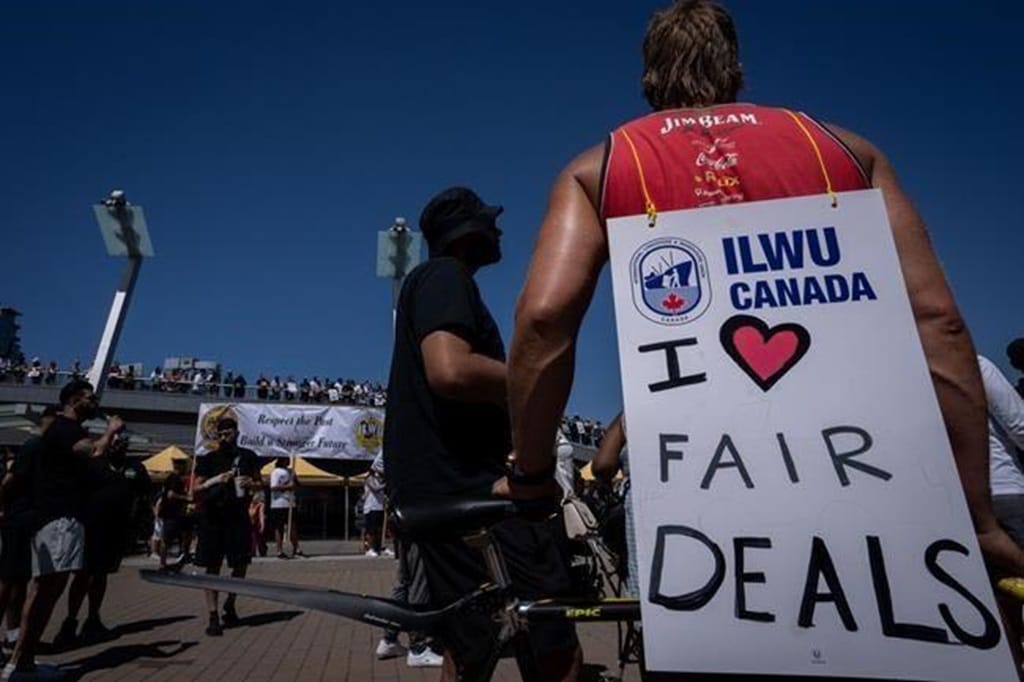News
Trudeau Government Forces Port Workers Back to Work

The Trudeau government has invoked federal authority to halt union strike actions at the ports of Vancouver, Prince Rupert, and Montreal, claiming economic damage and the loss of trading partners.
This is the second time in a few months that the Trudeau government has intervened to end a labor conflict. In August, Trudeau ordered work stoppages at the country’s two main railway corporations to cease.
Canadian Labor Minister Steven MacKinnon stated that the supply chain has been damaged and that it will take weeks to clear the container congestion affecting Canadian and US companies. He informed reporters that he had ordered the country’s industrial relations board to end the strike and impose binding arbitration.
“As the economic losses threaten the country and begin to mount, it is up to the government to ensure that … we can get on with the economic life of this country and avoid layoffs and other carnage,” he stated during a news conference.
“Canadians have a limited tolerance right now for economic self-harm.”
The issue, which MacKinnon claimed was hurting more than C$1.3 billion ($932 million) in goods every day, has already hampered shipments of canola oil, forest products, and other goods. Business organizations applauded the announcement.
Union Strike Action Heads to Court
International Longshore and Warehouse Union Local 514, representing supervisory longshore workers at the core of the British Columbia conflict, has announced that it will submit a legal challenge to the minister’s instructions.
“We will fight this order in the courts,” stated Frank Morena, president of ILWU Local 514.
“And we will not forget how these employers and this federal Liberal government have attacked not only the ILWU but all of labor.”
MacKinnon said the Canada Industrial Relations Board, which is independent but reports to Ottawa, will issue the required orders in a few days.
The left-leaning government has previously declared that it prefers to resolve labor problems through collective bargaining. MacKinnon said he was forced to interfere when federal mediators reported that discussions in Montreal and Vancouver had reached a stalemate.
The left-of-center opposition New Democrats, a pro-union group supporting the minority Liberal administration, accused Ottawa of giving in to employers.
“Back-to-work orders suppress wages for all Canadians, so billionaires get richer, and the rest of us fall further behind,” leader Jagmeet Singh said in a statement but did not mention bringing the Liberals down.
Trudeau Government Sends Dangerous Message
The Teamsters union, representing employees at the two major train companies, has launched court challenges to labor board judgments that ordered them back to work.
“The government is sending a dangerous message: employers can bypass meaningful negotiations, lock out their workers, and wait for political intervention to secure a more favorable deal,” the Canadian Labour Congress said.
After rejecting a final offer for a new labor deal, the Montreal Longshoremen’s Union called a lockout. As a result, canola oil and forest products exports from West Coast ports, including Vancouver, have ceased.
“These work stoppages are impacting our supply chain, hundreds of thousands of Canadian jobs, our economy, and our reputation as a reliable international trading partner,” said MacKinnon, who said employers and unions had not acted quickly enough.
“I’ve directed the Canada Industrial Relations Board to order that all operations and duties at the ports resume and to assist the parties in settling their collective agreements by imposing final and binding arbitration,” he told reporters.
Related News:
Air Canada Avoids Strike by Negotiating Last-Minute Deal
Air Canada Avoids Strikes by Negotiating Last-Minute Deals with the Pilots’ Union.





































